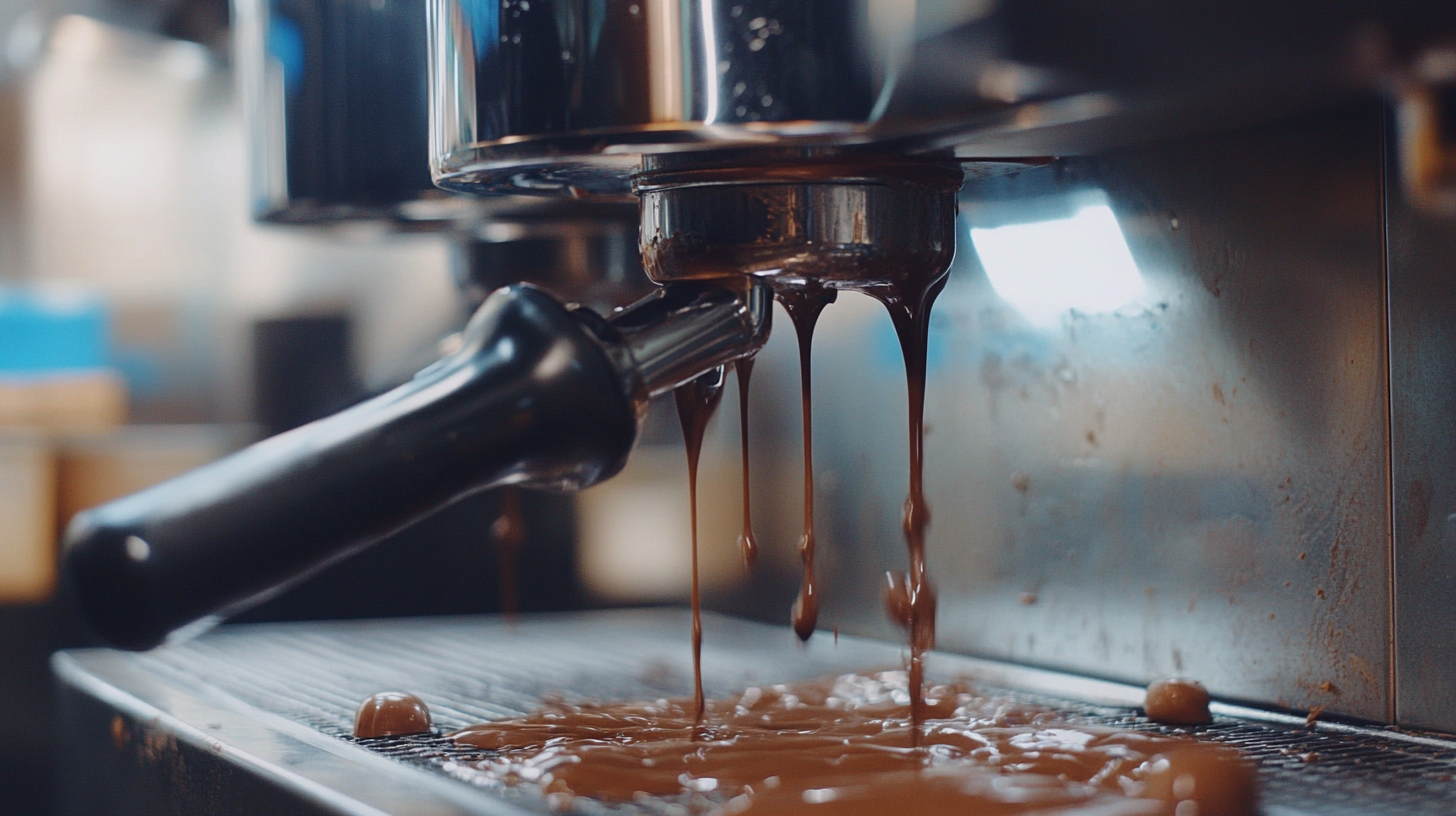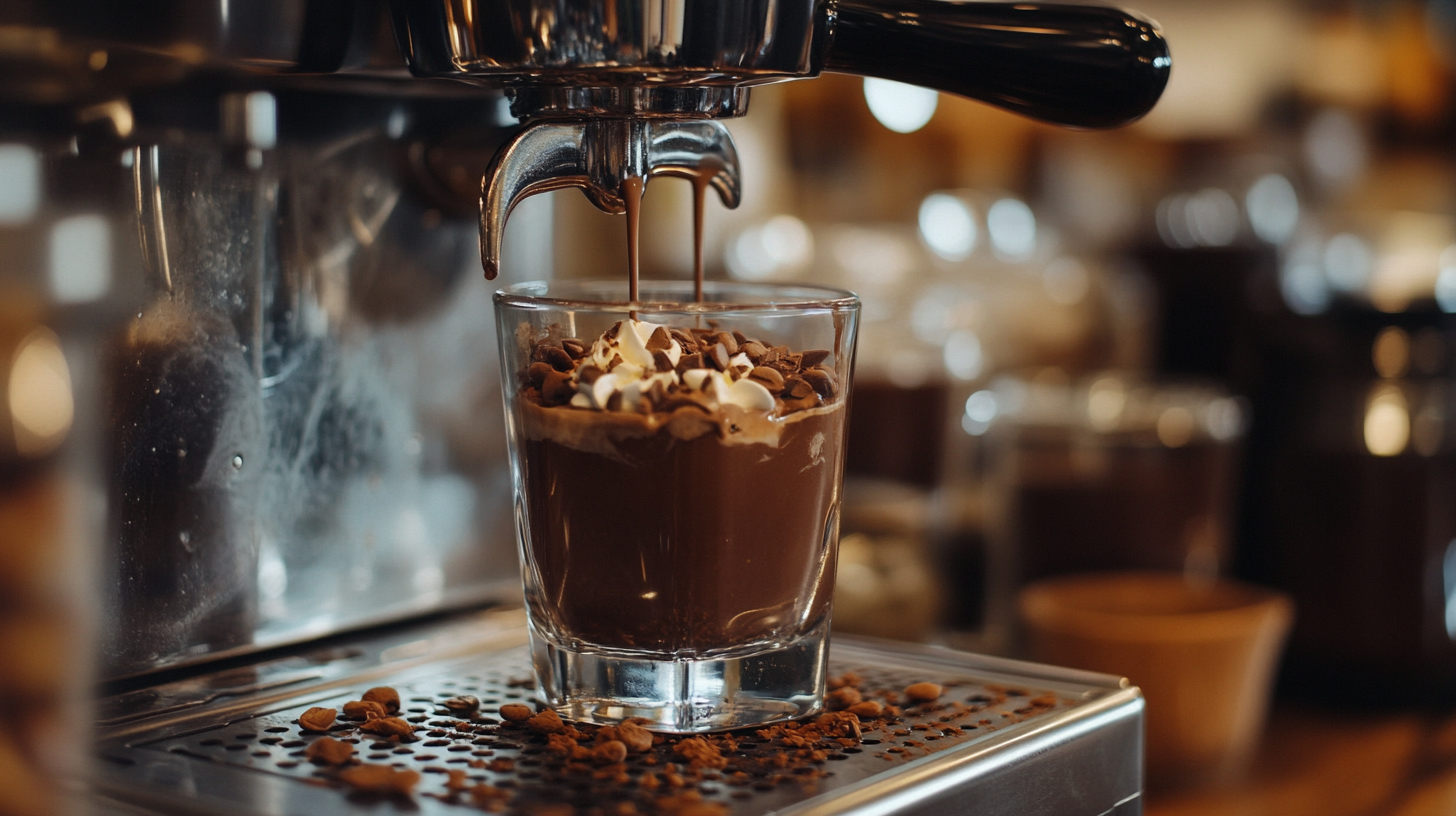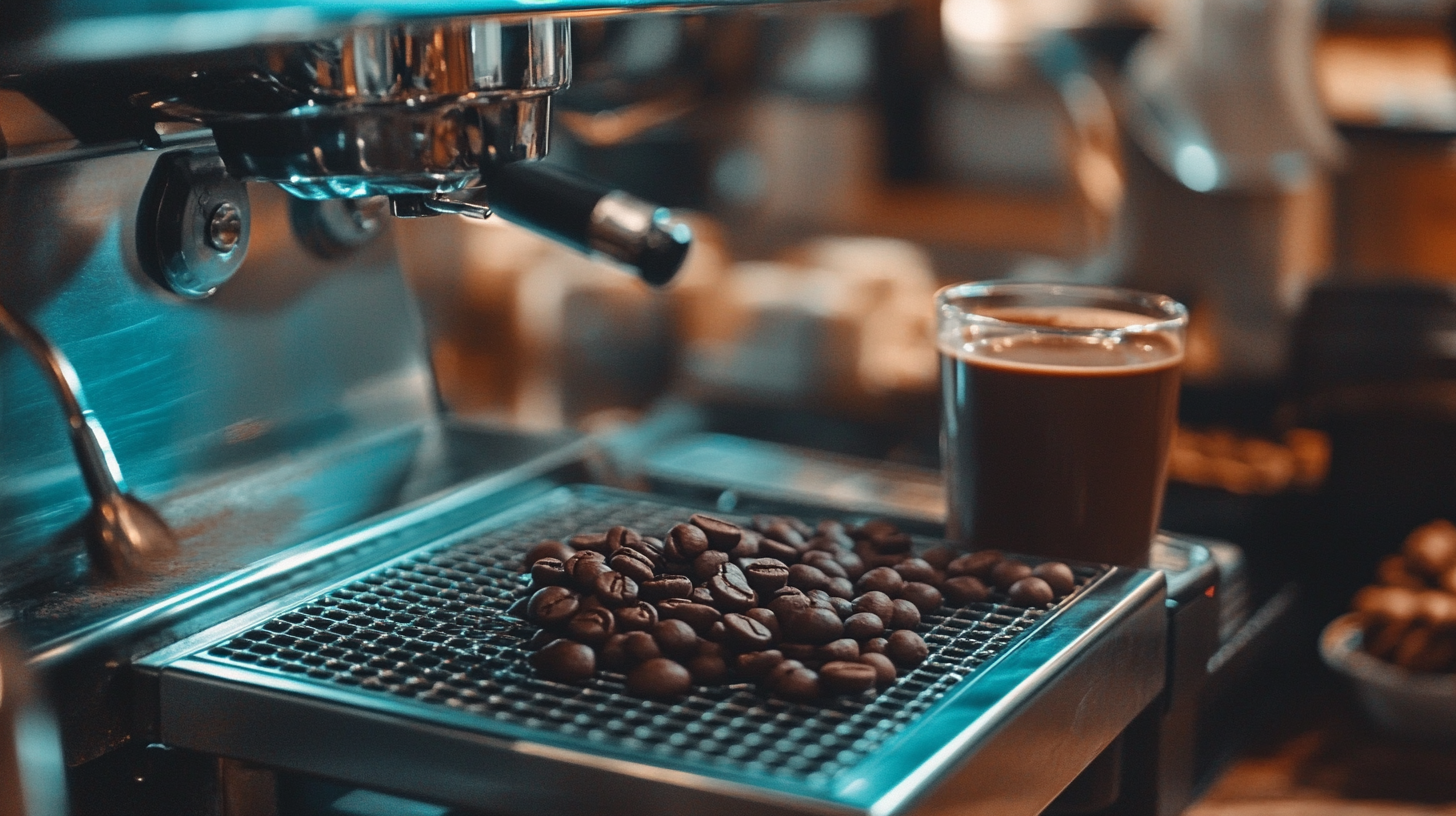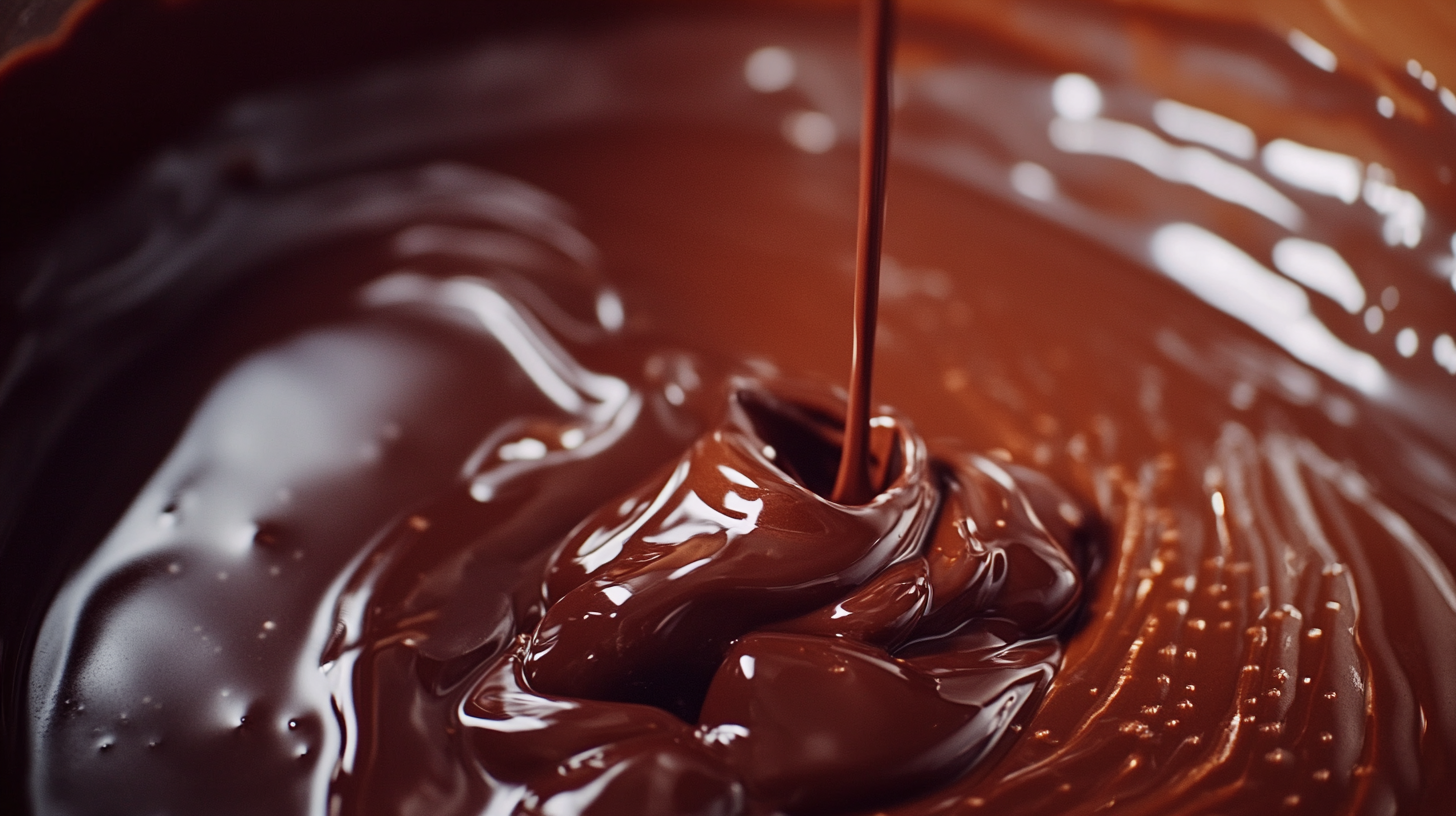It is worthy of note how the beverage industry continues to change, and niche products such as gourmet chocolate drinks are experiencing quite rapid growth due to such changes. A recent Grand View Research report points out that by 2026, the chocolate drinks market is forecast to reach USD 9.1 billion worldwide, growing at a compound annual growth rate (CAGR) of 6.5% between 2019 and 2026. This growing market attests to developing consumer attraction toward higher-quality chocolate beverages, driven by a shift toward more indulgent experiences and an increase in demand for specialty drinks. Hence, an effective Chocolate Drink Maker has become fundamental for those businesses that want to capitalize on this trend.
The role of a Chocolate Drink Maker itself goes beyond making drinks; it is a mixture of modern quality, innovation, and creativity in product offers. The increasing popularity of artisanal and craft beverages has led businesses to look for unique flavor profiles that are customizable and high-quality. A Chocolate Drink Maker well equipped is able to provide uniform quality and operational efficiency in a business so that the business can adapt quickly to what is being offered in the marketplace. This would be a smart investment for any company wanting to maintain its competitiveness in this booming market, which seeks to meet the growing customer appetite for high-end chocolate drinks while creating unforgettable experiences for their customers.

In the spectrum of the snack business, the importance of the chocolate drink maker today has assumed a new dimension owing to the new developments like a recent acquisition by Nestlé of Xu Fu Ji. The snack market in China is expected to balloon to USD 72.6 billion by 2025. Hence, the space for new and high-quality chocolate drinks is flooding. A chocolate drink maker is tasked not only company-wise to meet the quality but also customizes and delves further into flavors development. As per the 2022 Global Chocolate Market Trends report, flavor innovation is gaining significant popularity, with 55% of the population preferring unique and artisan flavors. This presents a challenge that requires a skilled chocolate drink maker to create beverages suited to the ever-changing consumer trends. Through premium ingredient and mixing technology, a chocolate drink maker can enrich products noticeably and make brands stand out in an increasingly oversaturated marketplace. Moreover, as competition heats up with the big names such as Nestlé making intense maneuvers, it becomes imperative for businesses to invest in product quality and developmental practices. The National Confectioners Association trance shows that about 70% of consumers would be willing to pay a premium for something made with high-quality ingredients. Therefore, employing a proficient strawberry beverage maker will not just magnify the quality of products but also find relevance in conquering market trends. Thus, it provides brands with a competitive edge in a dynamic world market.

In the evolving beverage landscape, where unique flavors and innovative ingredients are defining company-consumer interaction, projected to be worth $1.4 trillion by 2027 and grow at a CAGR of 5.9%, according to a Grand View Research study, the global flavored beverage market emphasizes the consumer shift toward distaste for generic wines and adulterated ingredients, something a chocolate drink maker should cash in on.
From this ethereal place of expected surprises and a sudden burst of creativity, premium chocolate, when blended with certain unlikely ingredients—such as exotic spices or superfoods—will take a beverage from an ordinary realm to an extraordinary realm. After all, if adaptogens are added to the chocolate drink, that drink serves the diet-conscious chunk of the population thirsty for "healthy" beverages: Beverage Marketing Corporation projected that almost 30% of consumers' beverages will be focused on health by 2025.
With the growing emphasis on sustainability and ethically sourced ingredients, this could be their unique selling proposition. Indeed, according to a Nielsen report, 66% of consumers are willing to pay more for products from brands that are committed to sustainability. A chocolate drink maker that takes fair trade and organic certifications as a priority would greatly appeal to the environmentally conscious buyer, with the product also being presented as unique against fierce competition. It should be quite evident that businesses can leverage unique flavors and careful choice of ingredients to win nonprofits for not only enhancing their beverage accompaniment but also create affinity for the right audience.

Offering a customizable drink menu is an important strategy for gaining extra customer satisfaction within today's competitive beverage market. A recent National Coffee Association report revealed that 79% of consumers prefer a drink that can be adjusted to their taste. With this trend, chocolate drink manufacturers are forced to take a good look at their offerings. Letting customers customize their chocolate drinks—be it in sweetness, type of milk, or any other flavoring—will greatly enhance customer interaction and loyalty activities.
Also, a Mintel study showed that 54% of consumers said they are more likely to sample a beverage with some degree of customization. Customizing your chocolate drink maker not only responds to this consumer demand, but also attracts an even wider audience, from those watching their weight who may want lower-sugar options to consumers that are simply looking for a guilty pleasure. The makers, thus, can penetrate different market segments and fuel repeat visitation with the ever-growing attraction of a tailor-made drink experience.
Another dimension worth considering is on-the-spot customization, perfectly in sync with the increasing trend for personalized dining experiences. The Technomic report states that 63% of consumers would want more personalized food and drink selections. Therefore, a chocolate drink maker would serve to give more appeal to your brand, while at the same time engaging customers with a personalized experience. It is at the intersection of technology and consumer desire that customizable chocolate drinks become an important element in enhancing customer satisfaction and thus driving sales.

Generally speaking, operational efficiency, which pertains to factors that determine the success of a business, must be enhanced in the context of fast foods and beverage services. A chocolate drink maker can greatly assist in this by reducing the time it takes to make the drink. Thus, the businesses can deliver a variety of chocolate-based beverages to the customers within no time, especially during the rush hours. This again works to not just reduce the customer waiting time but to also allow the staff to squeeze in other important duties within the hours.
Furthermore, so much also hinges around the consistency and quality of the product-the reliance on the specialized chocolate drink-making equipment ensures that the customers receive a standardized product that continues to delight them. With the automated processes for mixing and heating, the baristas will be in a position to deliver the drinks with utmost precision and to put in minimal training to the craft. This, therefore, minimizes human error, hence ensuring that every cup is prepared according to the brand's quality standards. Such reliability can lead to brand loyalty as the customers start expecting the chocolate drink maker to deliver on its promise of excellent-tasting drinks.
Finally, chocolate drink-making equipment can be one way of money-making investment. It hastens service and perfect measurements from which waste is reduced, hence giving businesses the highest output with minimal costs. From the smallest and coziest of cafes to the busiest and loudest of restaurants, a chocolate drink maker enhances operational efficiency and directly impacts the customer experience, paving the way for successful sustainable growth in the competitive beverage industry.
In a hyper-competitive beverage industry, the ability to connect emotionally with consumers is one of the most important cornerstones of brand loyalty. About drink experiences themselves, it involves much more than taste; it means the history behind the brand and its values. Storytelling bestows such emotional experiences, making them more real for consumers. This especially works for the younger generations, who want brands to be authentic and relatable.
Social media promote brand loyalty. While over 95.13% of users all over the globe use the media, brands should take advantage of sociality to make stronger their stories. Campaigns that are lifestyle-focused and resonate, like a tea brand's recent collaboration with a luxury fashion house in launching an exclusive beverage, show cross-pollination in action and can enhance the visibility and desirability of all involved. It is one thing to attract the audience's attention with these stories; it's quite another to open them up to unique drink experiences that turn into memorable shares within their social networks.
As more loyalty is built into the image of the brand, transparency counts further. For example, declaring calorie counts builds trust among health-conscious consumers to accept the brand. Transparency with the ingredients and nutrient content enables the beverage manufacturer to address the growing demand for healthier choices and responsible consumption. Against this scenario, brands that emphasize emotional engagement, transparency, and social interaction will emerge and enjoy sustained consumer loyalty.
For more information, fill out our contact form